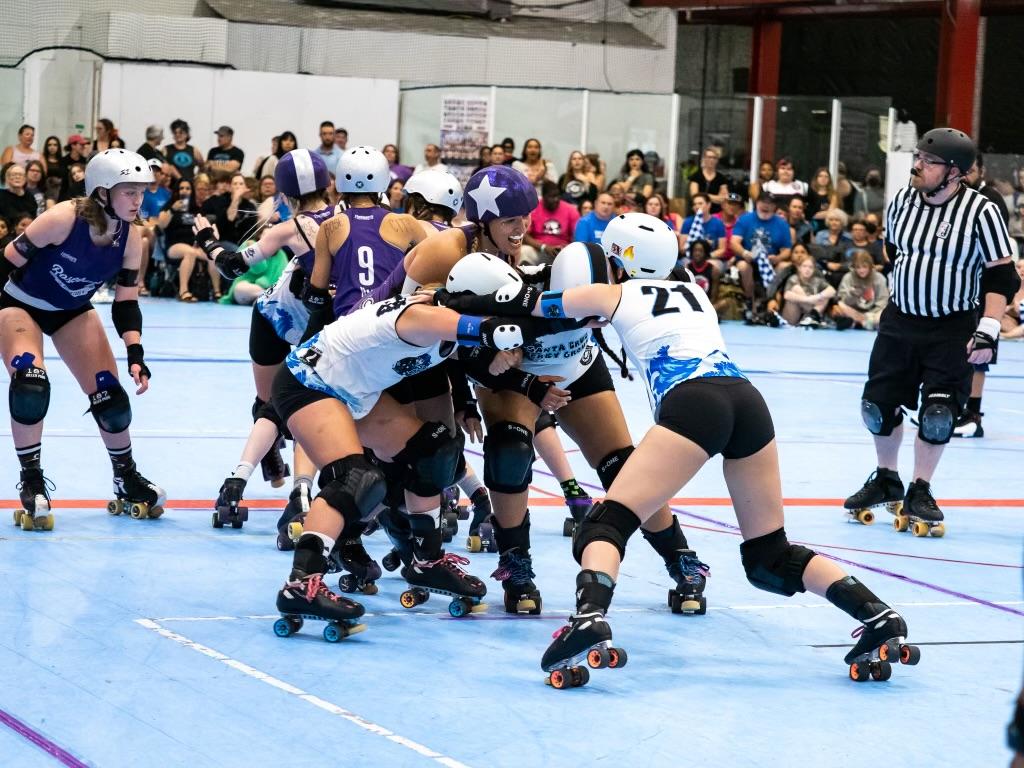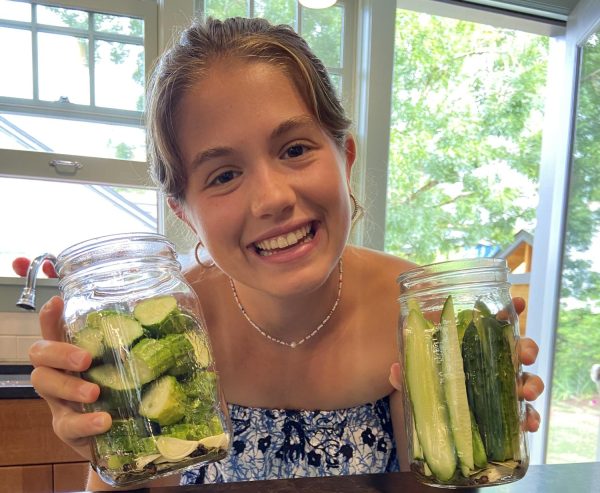
If you’re like me, when you picture roller derby, it’s rough, ruthless, and covered in mascara and neon colors, the definition of tough. With athletes’ names spanning from Miss United Skates to Banshee and even Derby Devil, roller derby athletes take the rink across the world. I was no derby expert going into this article, and I don’t claim to be one now, but after taking a deep dive into the underrepresented sport, my eyes were opened to the true nature of roller derby.
While it seems like a newer sport, according to the New York Times, roller derby has been around since 1935. To give a simple rundown, in a derby match each team sends four blockers and one jammer onto the rink for each round. The jammer, identifiable by the star on their helmet, has to get past the blockers hips and when done successfully, they score a point. The jammer taps their hips to signal the end of a jam and these rounds continue for the rest of the game.
In the physical sport of derby, connection, teamwork, and communication continuously came up in my interview with roller derby athletes from Franklin. “You have to anticipate your teammates’ next goals and next movements. There’s so much talking, we’re constantly talking on the track saying what’s happening and if you’re on travel teams, you are always together,” explains Franklin senior Elsie Stevens, with the derby name Elsie U. Later. She played on Team U.S.A. for the Junior World Cup in roller derby. “We’re all just in this one space and we all know each other [and are] from all parts of Portland and [many of us] grew up playing together.”
While derby is a high contact and physical sport, you can’t overlook its additional mental toughness. “It’s really taught me how to keep my head in situations because some really frustrating things will happen on the track, but I have to keep myself calm because [if I don’t] I’ll be pulled off the track,” says Noah Grummert, a freshman at Franklin on the Undead Avengers with the derby name Calcifer. Stevens also notes the importance of mental toughness, saying that it “can be really stressful, feeling like all the pressure is on you.”
Even though derby can be physically and mentally demanding, the connection of the team is even more important and roller derby can be an accepting community for everyone. “Everyone has a different background and they come from different places and everyone shows up to practice on days that things have happened to them and you don’t know where people are coming from,” includes Stevens.
If you may be interested in playing, be open to interacting with new people, learn how to feel comfortable and control your body on skates, and get good gear. Quinn Lawson, who plays on Death Scar Derby Droids with the derby name Ghoul, shares that “it seems scary but you’ll learn all the skills and it’ll all come with time.” Roller derby doesn’t stop once you turn 18 and graduate high school; after playing on a junior derby team, you can get drafted onto adult derby teams! If you are considering derby, know that any age, background, and body type are welcome and it can be a great alternative if you aren’t a fan of sports like soccer or basketball.
“Some sports are more fun to play than to watch, but derby is a lot of fun to do both,” explains Lawson. If you’re interested in giving derby a try, check out rosecityrollers.com to watch a game, attend derby camps, or learn more about how to get into the sport!



































J Stevens • Mar 23, 2025 at 1:46 pm
Nice article!